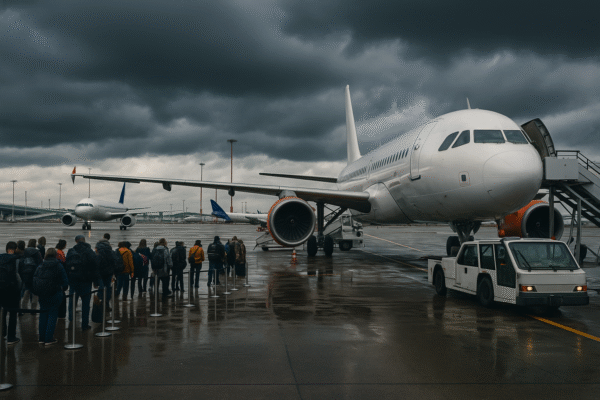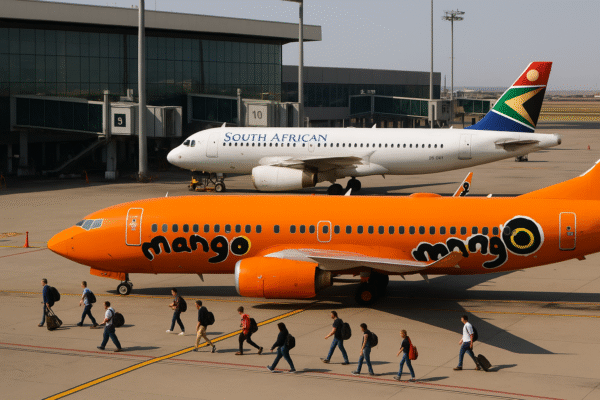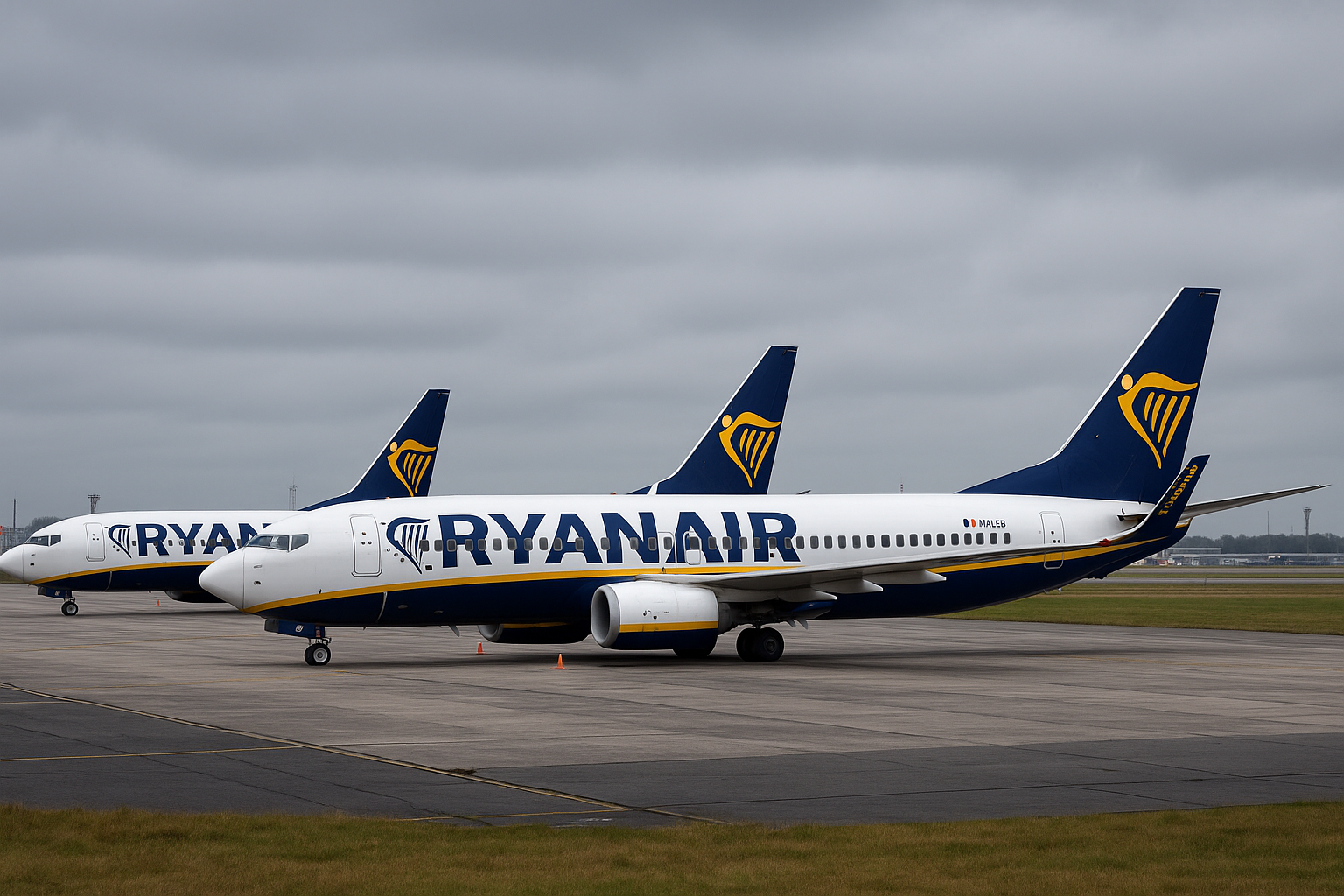Tens of thousands of air travelers are facing flight chaos this week as Ryanair cancels 170 scheduled flights across Europe, directly impacting over 30,000 passengers, due to an imminent strike by French air traffic controllers (ATC). The strike, which is scheduled to begin on Thursday evening, threatens to paralyze operations at key French airports and disrupt flights that pass through French airspace—regardless of their origin or destination.
The cancellations come as French aviation authorities, specifically the Direction Générale de l’Aviation Civile (DGAC), have requested a 40% reduction in flight schedules at both Paris Charles de Gaulle (CDG) and Orly airports on Friday, as a precautionary measure in anticipation of the walkout.
Cross-Border Impacts of French Air Traffic Strike
The strike’s ramifications go well beyond France’s borders. Because France controls a large section of Europe’s upper airspace, hundreds of flights transiting over France—en route to destinations such as Spain, Italy, Germany, and the United Kingdom—will also face delays or diversions. Airlines operating overflights will need to reroute planes, leading to longer flight times, increased fuel consumption, and significant scheduling disruptions.
Ryanair, Europe’s largest carrier by passenger numbers, has condemned the situation and called on the European Commission to take urgent action to protect overflights during national strikes. The airline emphasized that flights merely passing through French airspace should not be held hostage by localized industrial actions.
Ryanair CEO Demands EU-Led Aviation Reform
Michael O’Leary, Ryanair’s outspoken Group CEO, has once again criticized the recurring disruptions caused by Europe’s fragmented air traffic control network. He is urging the European Union to reform its aviation infrastructure by ensuring:
- Minimum ATC staffing levels during strikes
- Mandatory protection of overflights not landing in France
- Creation of a unified European air traffic management system
“Passengers who are not even flying to France are being disrupted because French air traffic controllers can close the skies over Europe. This is unacceptable,” O’Leary stated in a video message. He called on EU Transport Commissioner Adina Vălean to propose legal mechanisms that preserve the freedom of movement across EU skies, even during national strikes.
Longstanding Labor Disputes in France
Strikes among French air traffic controllers have been a persistent issue. According to Eurocontrol, France accounted for over 70% of ATC-related disruptions in Europe during 2023. French unions argue that staff shortages, workload pressures, and stagnating wages have reached critical levels. In 2024, France narrowly avoided a similar strike only after last-minute government mediation.
The French Syndicat National des Contrôleurs du Trafic Aérien (SNCTA), one of the largest ATC unions, insists that the strike is necessary to force reforms within the French ATC system. However, with Europe entering its peak summer travel season, the timing could not be worse for airlines or tourists.
Travelers Advised to Monitor Flight Status Closely
Ryanair has already contacted passengers impacted by the 170 flight cancellations, offering either free rebooking or full refunds. The airline also recommended that all customers flying this weekend check their flight status regularly on the airline’s website or mobile app.
Travelers connecting through France or flying over its airspace are being advised to:
- Arrive at airports early to navigate longer security queues
- Prepare for possible delays or overnight layovers
- Consider rebooking with routes avoiding French airspace if feasible
The International Air Transport Association (IATA) has echoed Ryanair’s concern, emphasizing that “Europe’s air traffic network remains vulnerable due to national-level decisions affecting international connectivity.”
EU Struggles to Balance Labor Rights and Travel Freedom
The growing chorus of calls for EU intervention places Brussels in a difficult position. While workers’ rights to strike are protected under EU law, so too is the freedom of movement for people and goods—a core pillar of the European single market. Striking a balance between these rights has proven elusive, especially as labor actions increase amid post-pandemic economic pressure.
In April 2024, the European Parliament debated proposals for a Single European Sky (SES) initiative aimed at centralizing air traffic management to reduce fragmentation and boost efficiency. However, member states like France have resisted moves that could transfer sovereignty away from national ATC bodies.
Broader Implications for European Travel Industry
The current wave of cancellations underscores the fragility of Europe’s aviation infrastructure. As the continent emerges from pandemic-era travel restrictions, passenger volumes are rebounding sharply. According to IATA, European airlines are expected to carry over 800 million passengers in 2025—a number that requires seamless coordination between airlines, airports, and ATC providers.
Without structural reform, industry experts warn that delays, cancellations, and stranded passengers will become a routine part of the European travel experience. The French strike is a potent reminder that modern air travel still relies heavily on outdated, nationally segmented control systems.
Conclusion: Will Europe Act?
As Ryanair cancels 170 flights and tens of thousands of passengers across Europe brace for travel chaos, pressure is mounting on EU institutions to act decisively. With demand for air travel surging and summer tourism peaking, time is running out for Brussels to implement effective air traffic reforms.
Until then, travelers navigating through or over France are advised to remain flexible, stay informed, and prepare for potential last-minute changes—especially when industrial action takes flight.
For more travel news like this, keep reading Global Travel Wire
















